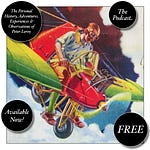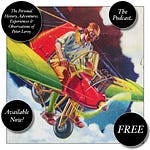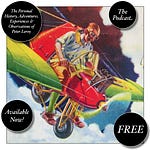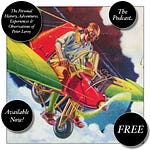28
FROM The Films of Gregory Tschudin, by Andrew Cargill:
A Little Mischief
Anne Coffin (Deirdre Frost) is a college student who has returned to her home town for the summer and taken a job as a maid at a resort. She’s from a working-class family that is just scraping by. Sending her to school is a sacrifice. Each of the members of her family makes a point of detailing for her exactly what he or she is giving up for the sake of Anne’s self-indulgent fling at overreaching. This grotesque bunch—her surly father (Harper Beckman, in his final role), her witless brothers (Dirk Selden and Tory Dern), and her whining mother (Melissa Thorne)—is straight out of a Breughel painting. We always see them at home, in a glorified shack on the bank of a muddy river, gutting fish or kicking the cat or emptying a bucket of slops out the window.
In sharp contrast to this ever-so-humble home, the resort is gleaming white, bright, and dazzling. (Tschudin actually went so far as to have bits of ground glass mixed into the paint so that the walls would literally glisten when the light played over them.) There Anne is attracted by what seems to her a life of ease and glamour. She is ill-used by a couple of the guests (and we see what she never does, the way that they discuss her as if she were a piece of goods, the plans they make to pass her around). Eventually, she is seduced by the young manager of the place, Gordon Cole (Lawrence Dell). Cole is a cold, calculating opportunist who wears an extremely effective disguise of earnest ambition.
In time, Anne discovers that Cole is stealing—from everyone. He picks up a piece of jewelry that he happens to see lying around a guest’s room, he takes a couple of bills from a wallet in the men’s locker room, and he sticks his hand into the till now and then. He has a couple of close calls, but deftly shifts the blame—first to a busboy (Darren Ziff, whose googly-eyed infatuation for Anne is so hopeless you want to slap him out of it) and then to one of the maids, who confides her suspicions about the real thief to Anne.
Anne begins spying on Cole, and he is so clumsy, or so overconfident, that she soon sees just what he’s up to. Blinded by her affection for him, she even helps him—without his knowing it. When a guest comes along while Cole is poking around in his room, Anne delays him by playing the flirt. When Cole’s boss notices a discrepancy in the dining room receipts one night, she claims to have miscalculated her tips and makes up the shortage from her own pocket.
One night Cole gets in over his head. An old couple, celebrating an anniversary at the resort, surprise him in their room, with a diamond bracelet in his hands. He tries to talk his way out of the spot, but the woman becomes hysterical, and he hits her. She falls to the floor, unconscious, and the old man strikes at Cole. Cole hits him, repeatedly, bloodying his hands, and dropping the old man to the floor. At this point, he loses all control. The madness in his eyes—part terror, part fury, part blood lust—is chilling, but Tschudin, never one to miss an opportunity for excess, doesn’t stop at that. He calls on the entire catalogue of film noir tricks and gimmicks. The heavy shadows, low camera angles, jarring music, they’re all here. So is Tschudin’s irresistible urge to do away with his characters in the most brutal ways. Cole batters the couple until he’s simply too tired, or too drained emotionally, to hit them anymore. Then Anne bursts into the room.
She says nothing. The sight seems to have sent her into shock. She begins, methodically, and with a grim disinterest that is brilliantly repulsive, to clean up after Cole and to wrap the bodies in bed linens. Cole helps, after a fashion. He follows her lead. They go about their business like zombies. They carry the bodies to the boat dock, load them into a rowboat, and row onto the bay, far enough out so that they won’t be seen. Working together, still almost wordlessly, they push the bodies over the side. They float. Anne looks around, in a panic, with no idea what to do, and she turns to Cole, looks at him beseechingly, looking for some guidance. You can see him begin to think again, for the first time since he lost control of himself back in the old couple’s room. He looks Anne over. He notices the blood on her blouse. He looks at the bodies floating in the bay. You know he’s got an idea and it can’t be anything pleasant.
He grabs Anne, in one swift movement, and pushes her head against the gunwale of the boat. Then he drags her over the side and—in what I find the most horrifying scene in any of Tschudin’s films—with one hand on her neck he holds her head under the water until she drowns, while with the other hand he withdraws the couple’s jewelry from his pocket and picks through it, deciding what to keep. He puts a pair of earrings into Anne’s skirt pocket and the rest back into his own. He shoves Anne’s body away from the boat. He removes his shoes, ties the laces together, and drapes them around his neck. He lets himself over the side of the boat and swims for shore.
Tschudin has said—often—that he wanted to end the film there, but that is not the ending we are familiar with. In the film as it was released, one of the other guests, out for a stroll in the moonlight, sees the open door to the couple’s bungalow, walks over to it, peers in, calls their names, notices a wallet on the floor, picks it up and flips it open, sees Cole’s driver’s license, and pockets it. He walks off, and in the background we can see Cole walking out of the bay, his suit dripping wet, his shoes around his neck. Presumably, the truth will out. According to Tschudin, this ending was forced on him.
[to be continued]
Have you missed an episode or two or several?
You can begin reading at the beginning or you can catch up by visiting the archive or consulting the index to the Topical Guide. The Substack serialization of Little Follies begins here; Herb ’n’ Lorna begins here; Reservations Recommended begins here; Where Do You Stop? begins here; What a Piece of Work I Am begins here.
You can listen to the episodes on the Personal History podcast. Begin at the beginning or scroll through the episodes to find what you’ve missed. The Substack podcast reading of Little Follies begins here; Herb ’n’ Lorna begins here; Reservations Recommended begins here; Where Do You Stop? begins here; What a Piece of Work I Am begins here.
You can listen to “My Mother Takes a Tumble” and “Do Clams Bite?” complete and uninterrupted as audiobooks through YouTube.
You can ensure that you never miss a future issue by getting a free subscription. (You can help support the work by choosing a paid subscription instead.)
At Apple Books you can download free eBooks of Little Follies, Herb ’n’ Lorna, Reservations Recommended, and Where Do You Stop?
You’ll find overviews of the entire work in An Introduction to The Personal History, Adventures, Experiences & Observations of Peter Leroy (a pdf document), The Origin Story (here on substack), Between the Lines (a video, here on Substack), and at Encyclopedia.com.














Share this post